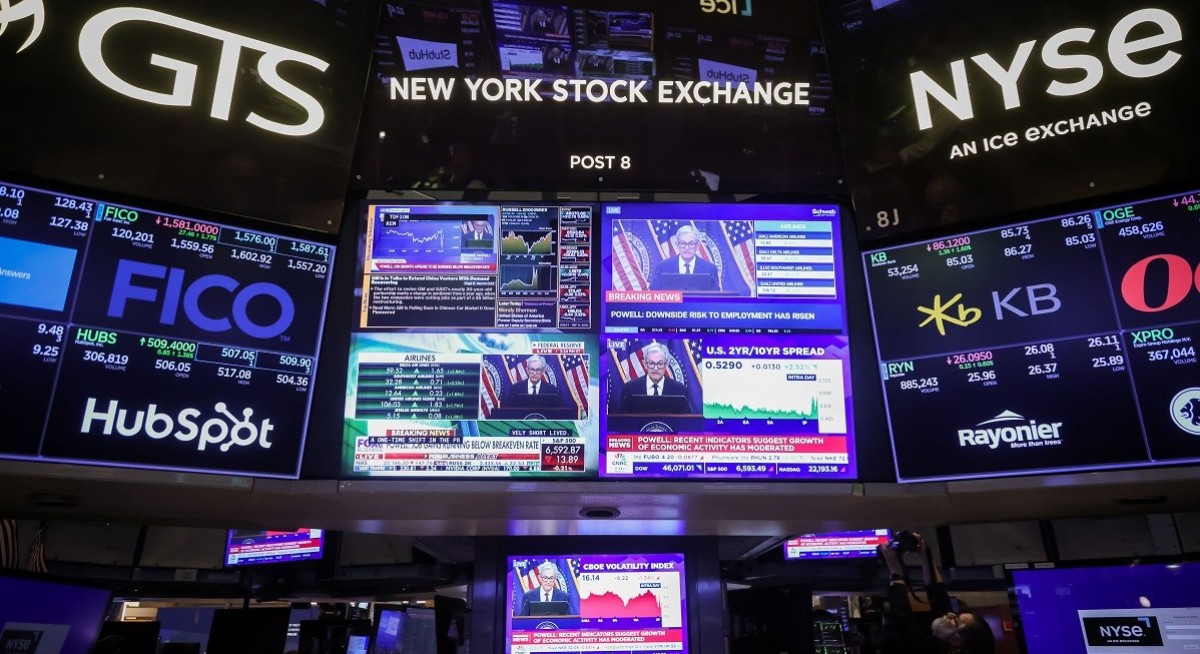The S&P 500 has posted an average 12-month return of nearly 13% following previous valuation warnings by Fed chairs dating back to 1996, according to data from JPMorgan Chase & Co. The bank also noted that US equities have typically outperformed international peers in the 12 months following those warnings.
And this time around, Fed Chair Jerome Powell’s remark last week that “equity prices are fairly highly valued” came at a time when many stock strategists have been warming to the idea that higher valuations are turning into a new normal on Wall Street, arguing the rise of tech-fueled earnings growth merits higher multiples.
“There’s no question the market has shrugged it off,” Matt Maley, chief market strategist at Miller Tabak + Co LLC, said of Powell’s remarks on valuations. The S&P 500 is flat since Powell’s comments.
Still, Maley said that investors “need to be careful,” and he’s seeing complacency across Wall Street about stretched valuations, which he noted far exceed where multiples were back when former Fed chair Alan Greenspan warned investors about “irrational exuberance” in 1996.
See also: Rout deepens on Wall Street as tech, crypto slide
Powell’s latest comments come as the S&P 500’s forward price-to-earnings ratio is hovering near the highest level since 2021 — another time Powell weighed in on stock valuations, saying more directly that “asset prices are high.”
To Fabio Bassi, head of cross-asset strategy at JPMorgan, Powell’s comments echoed valuation warnings from previous Fed chairs like Janet Yellen, Ben Bernanke and Greenspan — none of which spooked the market into an immediate correction.
“Over the past few years, and more often well after the strong performance of risky assets post the Great Financial Crisis, various Fed chairs have raised red flags about equity valuations and potential market complacency,” Bassi wrote.
See also: KKR’s 4Q profit hit by clawback at Asia private equity fund
The S&P 500’s forward price-to-earnings multiple, however, did contract slightly on average over the next month, six months and full year after those central banker warnings.
S&P 500 Valuations at Highest Level Since 2021
Ed Yardeni, president and chief investment strategist at Yardeni Research Inc., wrote that Powell’s comments raised his concerns about the market’s continued rally. Yardeni still has a 6,800-point target on the S&P 500 this year, but noted the index’s price-to-earnings ratios are near record highs and the price-to-sales ratio is at a record.
Still, stocks have continued to march higher in the second half of the year, indifferent to warnings by strategists, investors and now the head of the US central bank. The S&P 500 is in the midst of a 104-session streak above its 50-day moving average, which BTIG Chief Market Technician Jonathan Krinsky noted is its longest such stretch since April 2024 and the fifth longest since 1990.
“The primary trend remains firmly bullish, but a shakeout is long overdue,” Krinsky wrote.
To be sure, some of the central bank’s previous warnings about equity valuations look a lot more prescient when the time horizons are extended. Powell’s remark that “asset prices are high” in April 2021 was followed by an almost 20% drop in the S&P 500 the following year. And while the exuberance only got even more irrational after Greenspan’s 1996 warning, the ensuing dot-com bubble did eventually end in tears for many investors in tech stocks.
Regardless, Wall Street is brushing off the Fed’s warnings once again, at least while corporate earnings continue to grow.
Stock “valuations and crowded positions are unlikely to become the catalysts for a correction,” JPMorgan’s Bassi said.




